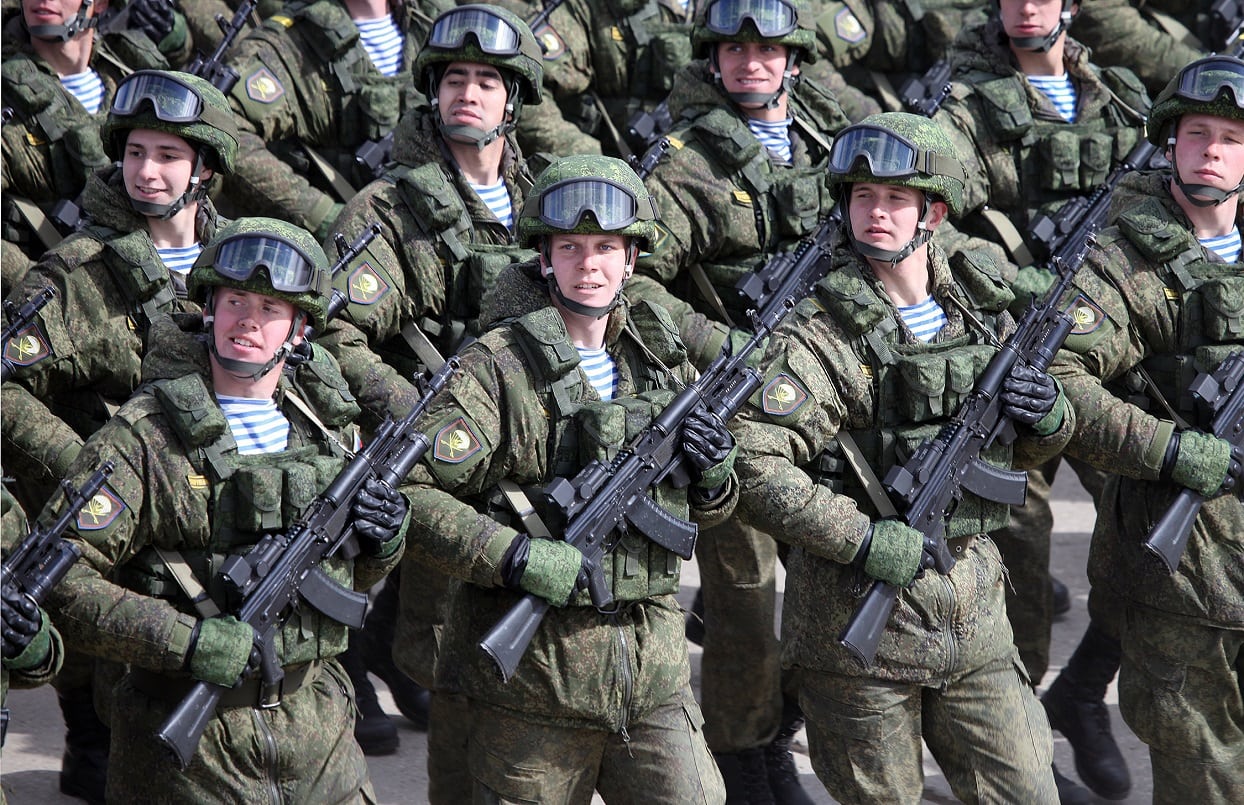If you believe you are engaged in strategic competition while your adversary is engaged in a war against you, for all practical purposes you have already lost. This adage could well be applied to NATO as its leaders stare at the unfolding crisis along the alliance’s eastern border, with thousands of migrants from the Middle East and Central Asia herded by the Belarusian government and pushed to force their way into Lithuania, Latvia, and Poland.
This crisis has been building for weeks now. Precious little attention was paid to it in Western media initially, perhaps because it was happening somewhere “out there” on the borders – to paraphrase a twentieth-century British politician – of faraway countries many in Europe know little about. But we are now at a stage where this assault on Europe’s eastern flank can no longer be ignored.
Along NATO and EU borders desperate people – many of whom have paid thousands to the Lukashenka regime to be ferried to the border – have been transformed into human bullets. The crisis has been ratcheted up by Putin’s military actions, with Russian bombers escorted by Belarusian fighters flying close to NATO’s Eastern frontier. In addition, Russian and Belarusian snap exercises saw the two countries’ airborne troops parachuted just kilometers away from NATO’s border. Putin is concentrating his military on the border with Ukraine, stirring fears across the alliance that he may invade the country once more. Meanwhile, Minsk has announced that it is in talks with Moscow about instituting “joint patrols” by Belarusian and Russian border security forces along the borders with Lithuania, Latvia, and Poland.
Putin’s irregular warfare (IW) playbook aims to hit the West at the heart of our axiological fabric, where values and assumptions about the sanctity of human life clash head-on with the irreducible duty of the state to provide for border integrity and security. The narrative of the migrants’ human suffering is being superimposed by Moscow on the constitutional obligations confronting each and every Western government, rendering thus far something akin to leadership paralysis among the largest EU countries.
Last night border security forces in Lithuania, Latvia, and especially Poland reported hundreds of attempts to breach their borders, with migrants pushed by Belarusian security forces, instructed to throw tree trunks and branches at the concertina wire separating the borders, to cut wire fences with wire cutters provided by Lukashenka’s forces, and to hurl rocks at the border guards, police and the military standing their ground on the other side of NATO/EU borders. The propaganda narrative emanating from Minsk and Moscow has been relentless, painting the Balts and the Poles as criminally liable for this humanitarian disaster, notwithstanding the fact that the three allies are simply defending their borders while the entire operation has been engineered, funded, and run by Lukashenka and Putin.
So, what’s Moscow intent in this IW campaign?
I would submit that this is another step by Putin to insert Russia deeply into European politics, making the Kremlin’s preferences and decisions a defining factor in how Europe’s relations with Russia evolve going forward. Putin has reason to believe he can get away with it. Moscow recently scored a major coup when the Biden administration lifted sanctions on the completion of Nord Stream 2, and what it wants now is the final deal to make the new pipe operational, consolidating Russia’s position as the principal supplier of energy to the European Union.
Simply put: Moscow wants to get paid – not just in additional revenue from the surging gas prices, but in political currency, in which the key states in the EU recognize that the Russian Federation is again both a European power and a power in Europe, able to shape what happens on the continent to its liking. Most importantly, this crisis may spell the end of any hope of a regional solution to the crisis in Eastern Europe, for if/when Russian border guard units start patrolling the Belarusian border with NATO, there will be no doubt of who defines what stability along that border means and what it takes to restore order. This final de facto absorption of Belarus into Russia will go beyond the current full military and intelligence services integration between the two states, and leave Ukraine alone, exposed to Russian pressure and increasingly devoid of Western support, regardless of what the Balts, Poles, or Romanians do to try to salvage Kyiv’s sovereignty.
In 2015 when the Balkan migrant crisis unfolded, we witnessed the fundamental weakness of the West in plain view for all to see, for the European Union proved unable to find a workable compromise that would reaffirm the sovereign rights of democracies to control who enters their homes and the humanitarian considerations that will always be an essential part of what we stand for. Instead, the après nous le deluge approach that best encapsulates the lack of leadership in 2015 that first opened Europe’s borders wide to a flood of migrants, and then sought to cut deals with external players, especially Turkey, to block the human torrent into Europe. This taught Putin and Lukashenka a valuable lesson: turn the values the West espouses against it and it will inevitably fold.
So today the ball is in NATO and the EU’s corners: Will the West finally stand up, impose the penalties on Russia and Belarus that will break their ambition (canceling Nord Stream 2 altogether would be a good start)? Or will the same hand-wringing declarations be all we are capable of, while violence against the alliance’s borders unleashed from Minsk and Moscow continues unabated?
The decision is up to us.
Andrew A. Michta is a Contributing Editor for 1945. The opinions expressed here are those of the author and do not reflect the official policy or position of the George C. Marshall European Center for Security Studies, the U.S. Department of Defense, or the U.S. government.

